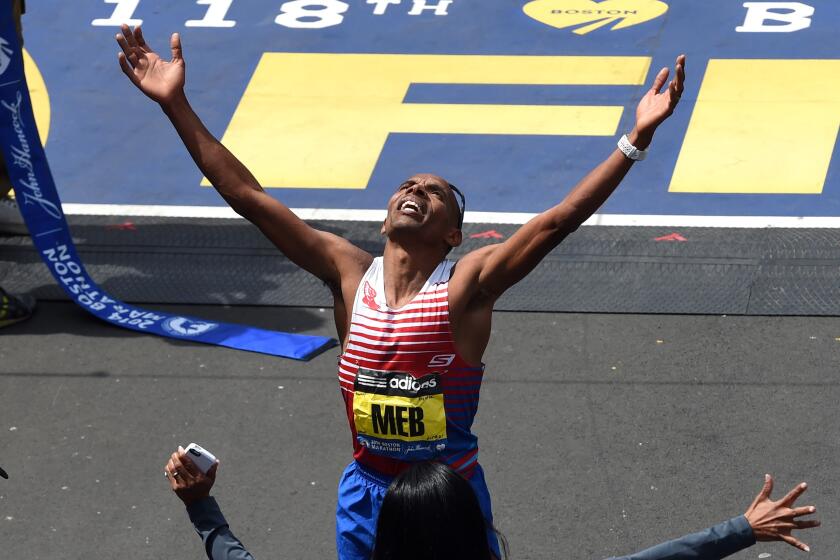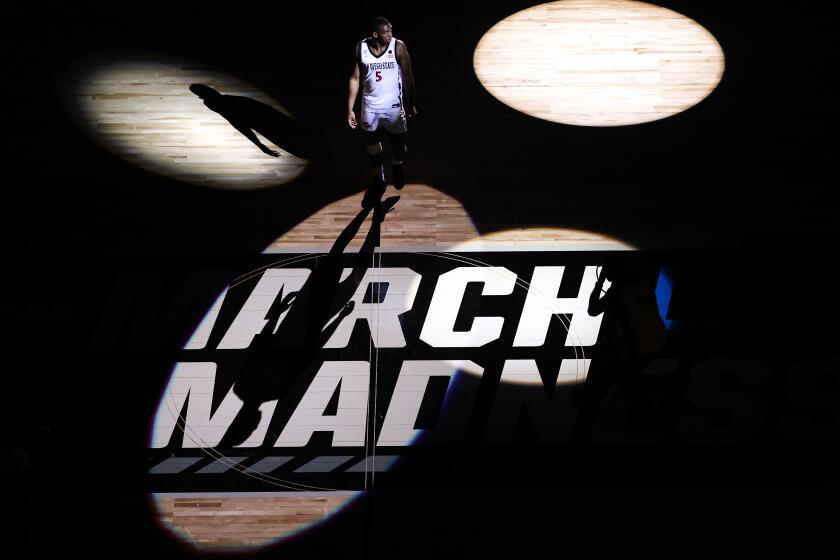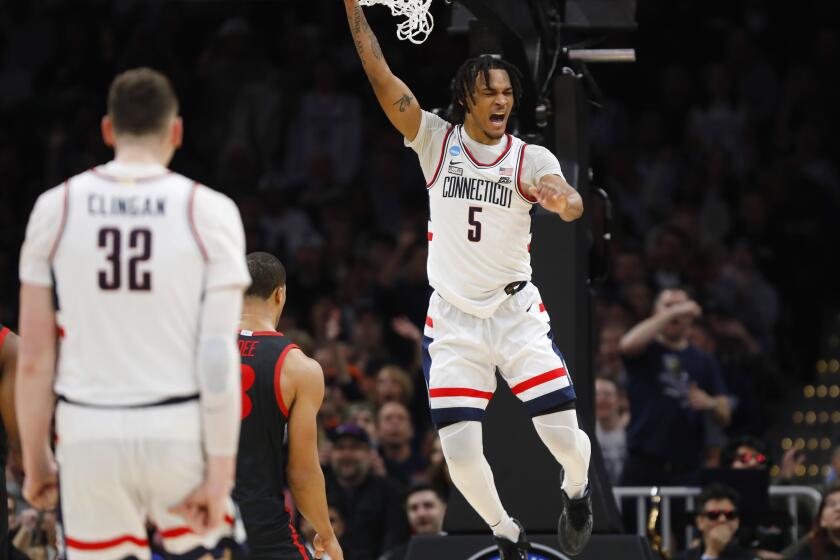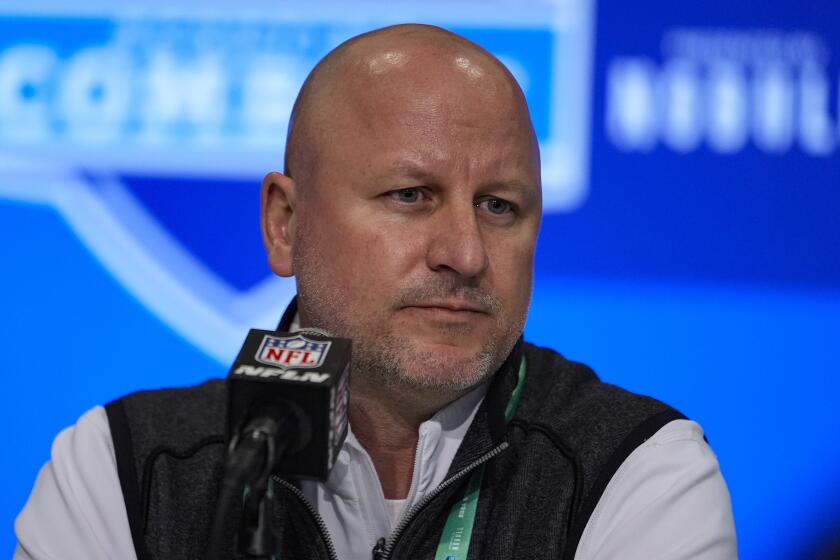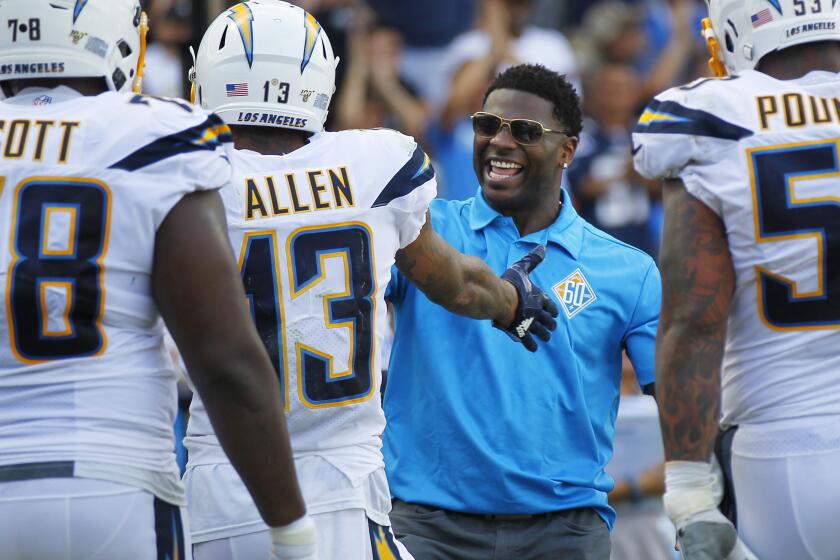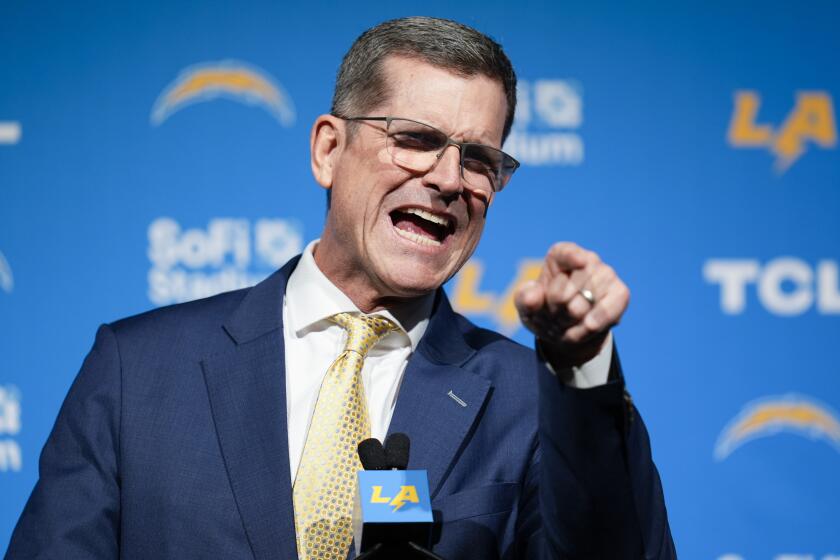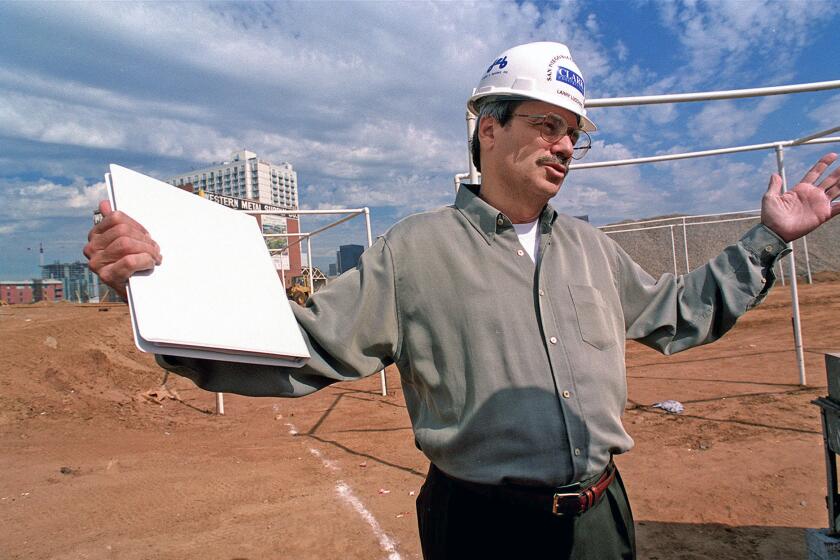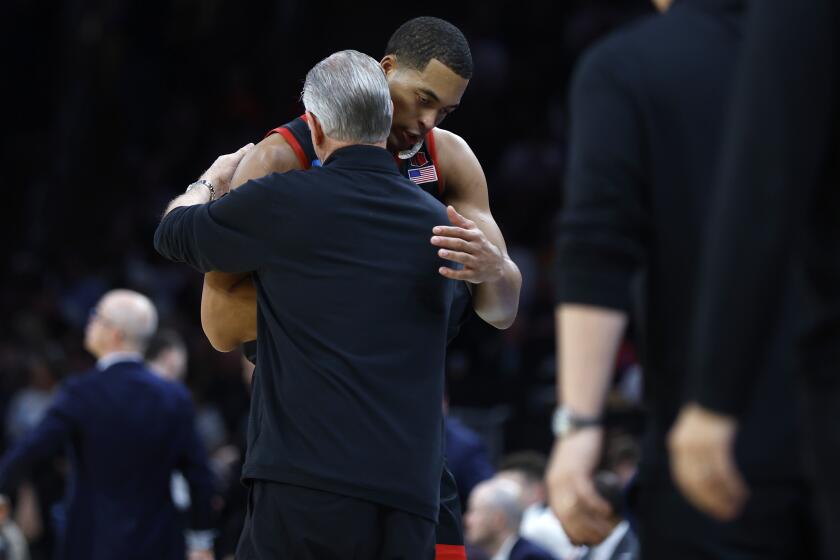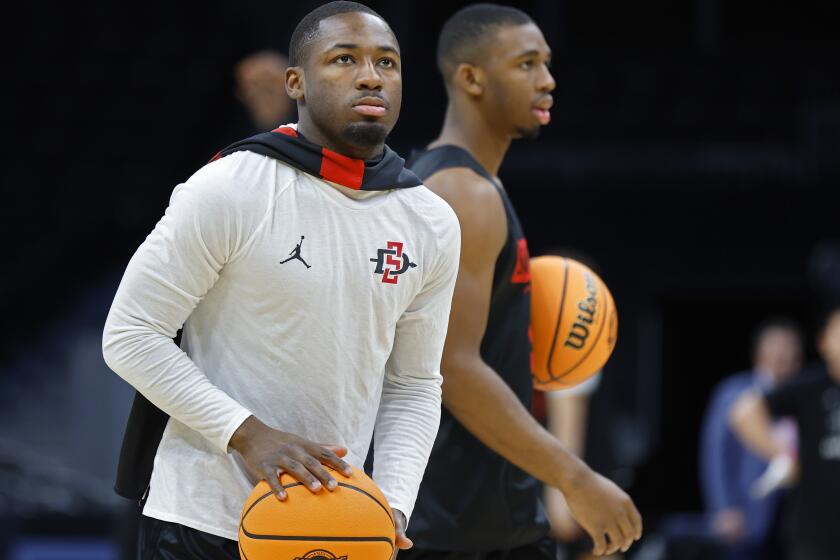Column: Iranian-American wrestling trailblazer Afsoon Johnston’s journey astounds
Family fled life-threatening danger to find roots, success in United States
Imagine being lined up military-style as a 7-year-old in a first-grade class, ordered to bark venom-laced chants and stomp on a flag before watching it set ablaze.
Try to process the fear, the confusion, the blur of thoughts bouncing around fragile minds like pinballs at a time when you’re supposed to learn how to count to 10 and master the alphabet.
El Cajon’s Afsoon Johnston understands the unsettling swirl of it because she lived it in Tehran, Iran. The country jarringly shifted from westernized lifestyles under the exiled Shah to the terrifying, tight-fisted religious rule of Ayatollah Khomeini.
Marg bar Amrika! Marg bar Amrika! Marg bar Amrika! …
Death to America.
“At the time, I was a child,” said Johnston, who grew up with the maiden name Roshanzamir. “I really didn’t know any different or any better, but I knew there was something not right about that. We were being taught hate. That wasn’t something my parents had ever raised me with.
“I figured out later, wow, they’re brainwashing us and creating soldiers to hate the United States.”
The startling starting point makes the destination of Johnston inspiring and profound. A new book entitled “Afsoon: Iranian Girl Overcomes Adversity to Become American Success Story,” chronicles a fascinating journey of fear, faith and fortitude.
The family survived harrowing moments to make it to the U.S., where Johnston — who turns 48 on Sunday — became the first American woman to win a world wrestling medal with a bronze at the 1989 world championships.
From death to America to a remarkable American life.
“If you think you want to do something, if you have a goal, if you something in mind, something you want, something you have a passion for, don’t let anything stop you,” Johnston said of the lesson learned. “Find a way.”
To understand who Johnston became, you need to know where she began.
Under the Shah of Iran, girls wore miniskirts and fashion was, well, fashionable. Kids watched American cartoons. Opinions and beliefs were shared and debated. When the Ayatollah seized power, music and alcohol were banned as women were required to cover themselves. TV options were limited to two state-run stations.
The draconian Islamic republic muted dissent and silenced protesters.
“It was terrifying,” Johnston said. “You know that scene from ‘Argo’ where people are hanging from (construction) cranes? That wasn’t unusual. We’d be driving with our parents and see someone hanging from a crane.”
No amount of time will erase Johnston’s haunting images of revolutionary guard soldiers rushing into the home of her 14-year-old aunt. They heard she had been handing out anti-government fliers on her school campus.
The aunt’s friend, who also was sought out by soldiers, unwittingly walked in. She was thrown to the floor, Johnston said, and bit into a cyanide capsule rather than face prison or brutal interrogation. Johnston’s aunt spent the next eight years in Iranian prisons.
Relentless bombings in Tehran during the ensuing war with Iraq — one claimed a close classmate, another nearly killed Afsoon— and the chaos of the Iran hostage crisis piled on to exacerbate it all.
The family hatched plans to flee to the United States. Johnston recalled the telling flight with her mother.
“As soon as the plane took off and we got into international airspace, all these girls and women in hijabs lined up for the bathroom,” she said. “They would come out without hijabs, with their hair done, makeup on and you saw all these beautiful women.
“I don’t know how to explain it. It was like birds earning their wings and they can just fly.”
Mother and daughter settled in San Jose as they waited for Afsoon’s father to figure out a path to the U.S. She remembers the difficult transition, including kids calling her a “terrorist” when they unearthed her nationality.
When classmates passed flirting notes and crumpled up the evidence, Afsoon thought about how rare and valued paper had been growing up. One piece of paper might have be used and reused for a week’s worth of homework.
“Looking around, it seemed really wasteful and everyone was taking things for granted,” she said. “In Iran, you couldn’t talk to boys. You weren’t allowed to interact with the other sex, whatsoever. So when boys approached me, I didn’t know how to react to that.”
The course of Johnston’s life changed because of an innocent stroll past the Independence High School wrestling room. Wrestling is the national sport in Iran, where Afsoon’s father became a champion. He would teach her moves in the family’s living room.
No one could have imagined those innocent moments would alter her world — half a world away.
As Afsoon, a freshman, and a friend walked by the wrestling room a boy began to tease the other girl. The fearless newcomer told the boy to stop, prompting the wrestler to ask what she planned to do about it.
“I don’t know what possessed me, but I blasted him with a double-leg (takedown) that put him right on his back,” she said.
Little did she realize she had toppled state champion Marco Sanchez, who later wrestled Greco-Roman for Puerto Rico at the 1996 Olympics. Sanchez challenged her to try out for the team, which included no other girls.
“I got home and it was nagging at me. ‘I really want to wrestle,’ ” Johnston said. “That feeling didn’t go away. This light bulb came on, nobody is going to stone me to death if I go out for the wrestling team. This isn’t Iran. I’m not going to get a public whipping.”
Fast-forward to Johnston standing on the podium in Switzerland at the 1989 world championships. She later added a world silver medal, but walked away from an Olympic bid during her prime to start a family.
Johnston, who has lived in San Diego since 2000, helped coach the U.S. women’s team at the 2016 Olympics.
What did it mean to be the most unlikely of American trailblazers?
“I was so proud,” she said. “Just pride in representing the United States. Pride in representing Iran. Pride in representing women. Pride in representing wrestling, my sport. As crazy as people thought I was, to go from that and legitimize it, I accomplished it.”
The American dream, indeed.
==
Iranian girl’s American journey
The road from Iran to U.S. wrestling trailblazer by El Cajon’s Afsoon Johnston is outlined in the book “Afsoon: Iranian Girl Overcomes Adversity to Become American Success Story.”
To learn more or order, visit afsoonwrestling.com.
Sign up for U-T Sports daily newsletter
The latest Padres, Chargers and Aztecs headlines along with the other top San Diego sports stories every morning.
You may occasionally receive promotional content from the San Diego Union-Tribune.



